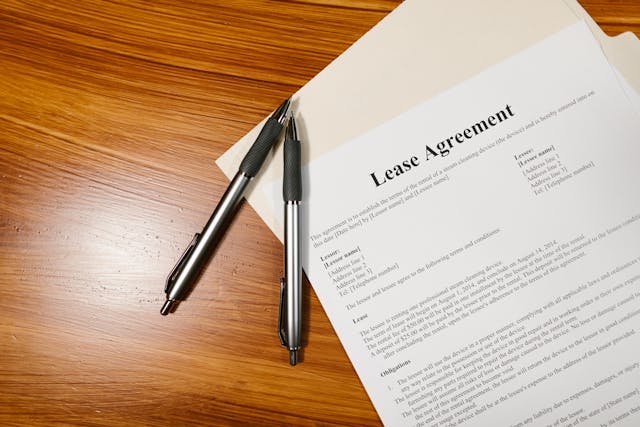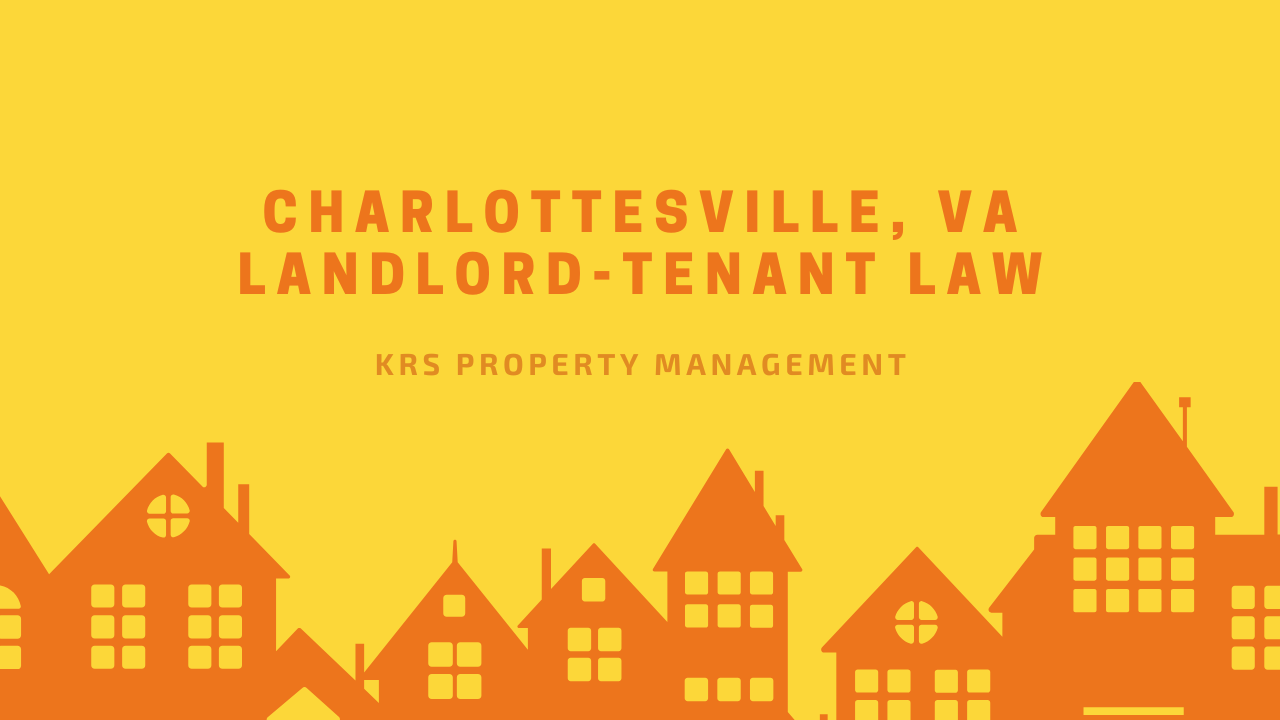Key Takeaways
Mandatory Disclosures: Landlords in Virginia are required to inform tenants about nonrefundable fees, provide a move-in checklist detailing the rental's condition, and disclose their own or their agent's contact information.
Tenant Rights: Tenants are entitled to a habitable living environment that meets health and safety standards. They also have the right to privacy, with landlords required to provide at least 24 hours' notice before entering the rental, except in emergencies.
Lease Termination Protections: Victims of domestic violence have the right to terminate their lease early without penalties, provided they supply proper documentation.
Landlord-Tenant Laws in Virginia
At KRS Property Management, we know that understanding landlord-tenant laws in Virginia is crucial for rental owners to ensure compliance and foster positive relationships with tenants.
These local landlord tenant laws outline the rights and responsibilities of both the landlord and the tenant and help mitigate conflicts, protect investments, and maintain legal transparency. Being familiar with these regulations is essential whether you’re a seasoned landlord or new to rental management.
By adhering to Virginia’s legal framework, landlords can minimize risks and create a thriving business.
Required Landlord Disclosures in Virginia
Virginia landlord tenant law mandates that landlords disclose specific information to tenants to promote transparency and protect tenant rights. Failing to provide these disclosures could lead to legal penalties or disputes.
The key disclosures include:
1. Nonrefundable Fees
Landlords must specify any nonrefundable fees (and all other fees) in the lease agreement to avoid disputes. Clearly stating these fees upfront helps establish transparency and build trust with tenants. As per Virginia law, landlords are not allowed to collect fees unless they are stated in the lease agreement.
2. Rights of Domestic Violence Victims
Victims of domestic violence have the right to terminate their lease early without penalties under certain conditions, provided they supply proper documentation. This provision offers protection and flexibility for vulnerable tenants, and must be properly stated in the lease agreement.
3. Security Deposit
Virginia limits security deposits to no more than two months' rent. Landlords must also provide an itemized list of deductions if any portion of the deposit is withheld. This ensures that tenants know the reasons for deductions and can dispute any discrepancies.

4. Owner or Agent Identity
Landlords must disclose their name and address or that of their agent in the lease agreement. This ensures tenants know who to contact for issues or emergencies and establishes accountability.
5. Move-in Checklist
Tenants should be given a detailed move-in checklist documenting the unit’s condition. This protects both parties and ensures transparency about damages, preventing disputes at the end of the tenancy.
Virginia Tenant Rights and Responsibilities
Tenant Rights
Virginia tenants have several fundamental rights designed to protect them and ensure a fair rental experience. These rights include:
The right to a livable dwelling: Landlords must provide housing that meets all local health and safety standards.
The right to privacy: Landlords are required to provide reasonable notice, typically 24 hours, before entering a tenant’s dwelling unless there is an emergency.
The right to withhold rent: Tenants may withhold rent if landlords fail to address significant repairs or habitability issues, provided they follow proper legal procedures.
Protection against retaliation: Landlords must respect tenant rights and cannot retaliate when they are exercised, such as when a code violation is reported.
Tenant Responsibilities
Virginia tenants also have responsibilities to maintain a healthy landlord-tenant relationship and care for the unit. Tenants must:
Pay rent on time as agreed in the written rental agreement.
Keep the unit clean and safe.
Report maintenance issues promptly to the Virginia residential landlord.
Comply with rental agreement terms and avoid causing rental damage beyond normal wear and tear.

Virginia Landlord Rights and Responsibilities
Landlord Rights
Virginia landlords have specific rights under the law to protect their properties and ensure smooth operations. These include:
The right to collect rent: Virginia residential landlords are entitled to the receipt of rental payments as outlined in the lease agreement.
The right to recover damages: Landlords can recover costs for tenant negligence or rental agreement violations, such as an outstanding rent balance or rental damage.
The right to access the dwelling unit: With reasonable notice, landlords can enter the unit for inspections, repairs, or emergencies.
The right to terminate leases: Landlords can end a lease agreement for valid reasons, such as rental agreement violations or the tenant’s failure to pay rent.
Landlord Responsibilities
Landlords in Virginia have legal obligations to ensure their properties meet certain standards and that tenant rights are upheld. Responsibilities include:
Maintaining habitable housing: Rental properties must comply with all applicable building and health codes.
Respecting tenant privacy: Proper notice must be given before entering a rental unit.
Managing security deposits: Landlords must return security deposits within 45 days of rental agreement termination and provide an itemized list of any deductions.
Providing necessary repairs: Landlords must address maintenance issues promptly to ensure the dwelling unit remains safe and habitable.
An Overview of the Landlord-Tenant Laws in Virginia
1. Tenant Privacy and Virginia Landlord’s Right to Enter the Dwelling
Landlords must provide at least 24 hours' notice before entering a tenant’s dwelling, except in emergencies. This ensures tenants’ privacy is respected while allowing landlords to address maintenance needs.
2. Condition, Maintenance, and Repairs
Landlords are responsible for ensuring that rental properties meet basic safety and habitability standards. This includes addressing issues such as plumbing, heating, and electrical problems promptly.

3. Virginia’s Housing Discrimination Laws
Virginia law prohibits discrimination of 7 protected classes. These classes include race, religion, and familial status, among others. Landlords must do their research to ensure they comply with both state and federal fair housing laws.
4. Security Deposits
Security deposits are capped at two months’ rent, and landlords must return them within 45 days of rental agreement termination, along with an itemized list of any deductions.
5. Required Landlord Disclosures
Transparency through disclosures, such as nonrefundable fees and owner identity, is legally required in Virginia. This protects both tenants and landlords from potential disputes.
6. Renters’ Rights to Withhold Rent in Virginia
Tenants may withhold rent if landlords fail to address significant repair issues that affect habitability. However, tenants must follow legal procedures and give landlords written notice.
7. Small Claims Lawsuits in Virginia
Landlords or tenants may file small claims lawsuits for disputes involving unpaid rent, rental damage, or security deposit issues up to $5,000. This provides a straightforward way to resolve disputes without hiring an attorney.
Bottom Line
Understanding Virginia landlord-tenant laws is essential for maintaining a smooth rental operation. Compliance protects your rental and fosters trust with tenants, minimizing disputes and ensuring long-term success. Whether it’s managing disclosures, addressing tenant concerns, or maintaining habitable properties, following these regulations will help landlords create a positive rental experience.
If you have specific questions about landlord-tenant laws, consider hiring the services of a qualified Virginia attorney. Alternatively, KRS Charlottesville offers expert management solutions to help you navigate these regulations and manage your properties effectively.
Disclaimer: This blog should not be used as a substitute for legal advice from a licensed attorney in your state. Laws frequently change, and this post might not be updated at the time of your reading. For assistance with any aspect of your property management needs, Contact KRS Charlottesville.







